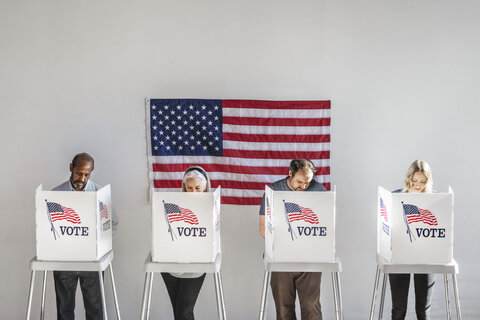California voters decisively defeated an attempt to expand rent control, voters in eight of ten states looked favorably on abortion rights, school choice fared poorly, and Coloradans voted to impose an excise tax on firearms but not ban trophy hunting. Those were some of the notable results of last week’s crop of ballot measures around the country. I discussed them with Caleb Brown at the Cato Daily Podcast here.
Some more details:
It was not an especially good day for advocates of drug freedom. Dallas voted for de facto marijuana legalization and Nebraska for medical cannabis. But Florida’s big marijuana measure, while earning a majority, fell short of the supermajority required (as did the state’s abortion rights measure). Massachusetts declined to legalize psychedelics. And in California, where Proposition 36 restored many of the higher crime penalties reduced by a 2014 initiative, drug crime penalties were among those affected.
It was a downright bad day for those of us who’d like to reform the way we hold elections. Primary reform, in particular, went down to defeat in at least five states, with the Alaska result still waiting on absentee ballots. For ranked choice voting standing on its own, it was more of a mixed bag, with Washington, DC, and several smaller municipalities saying yes but the state of Oregon declining. I’ll have more to say in another post.
Massachusetts voters went along with a measure meant to herd rideshare drivers into unions. The Service Employees International Union plowed $7 million into the campaign, against no organized opposition. A remarkable bit of background, via Ballotpedia: in June of this year Uber and Lyft agreed to settle a lawsuit brought by the state of Massachusetts over employment practices, and as one of the terms of the settlement they agreed to drop support for an initiative campaign that would have strengthened the rights of independent contractors against regulation in the state. Legally strong-arming private entities into giving up their right to petition for redress of grievances—no dangers to civil liberties there at all, am I right?
At the same time, Bay State voters said no to a plan to eliminate the tip credit on the state minimum wage. Restaurant workers in many states have spoken out against such schemes, which by discouraging tipping can actually reduce servers’ income. Arizona voters, on the other hand, declined to expand a tip credit.
Minimum wage laws remain popular, and left organizers have also found that voters in even conservative states like Alaska, Missouri, and Nebraska may look favorably on costly private employer mandates if sweetened with the term “earned,” as in “earned leave.”
Arizona voters missed a chance to do something genuinely useful, rein in their governor’s emergency powers by giving the legislature more of a say on them. Since the COVID-19 pandemic, about 10 states have moved to check emergency executive powers in this way, a reform which also has parallels at the federal level in debates over Presidents’ emergency powers.

